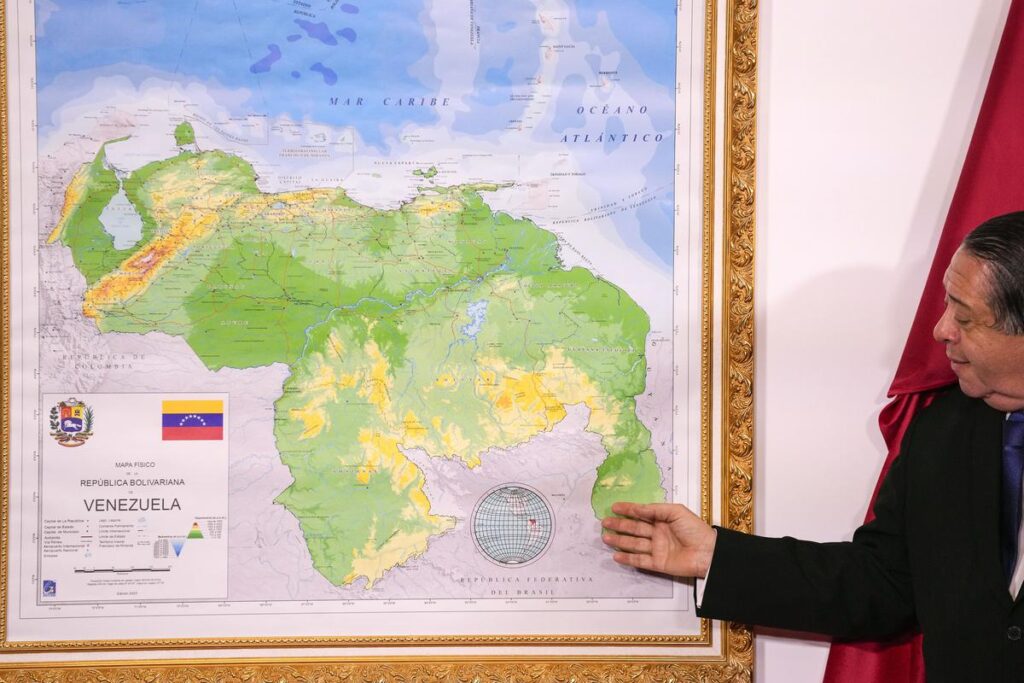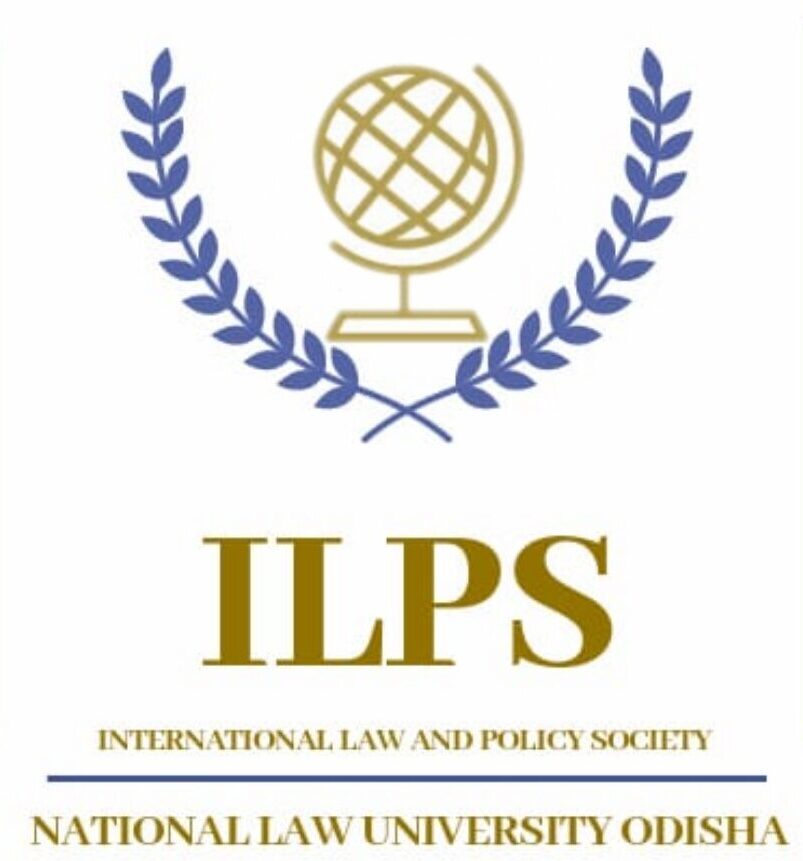
Written by Navya Bassi, Eshal Zahur and Aditya Bashambu
Introduction
During the first week of December, the President of Venezuela, Nicolas Maduro, endorsed a government-initiated referendum to assert sovereignty over resource-rich Essequibo, which is adjacent to Guyana. The National Electoral Council reported over 10.5 million ballots cast out of 20 million eligible voters in the country, indicating a voter turnout of over 50%. Essequibo constitutes two-thirds of Guyana and remains a hotly-contested territory, which Venezuela contends was unjustly taken during border demarcation over a century earlier. On the other hand, Guyana’s residents tremble in anxiety, considering the referendum a threat of annexation.
The International Court of Justice (ICJ) has previously directed Venezuela to not take actions altering the control Guyana has over Essequibo. Even then, their rulings did not imply that officials were banned from conducting the five-question referendum. Therefore, Guyana tried to stop the vote by seeking a court order. However, the Venezuelan regime had extensively promoted the referendum. Participation became an almost patriotic act, done to signify political support for Maduro. This article analyses the history of the conundrum and the position of Essequibo under international law, as well as the economic implications of the conflict.
Historical Background
Essequibo is a region in Guyana covering an area of around 160,000 square kilometres, which is two-thirds of Guyana’s total landmass. It has a population of over 125,000 and is abundant in natural resources, like notable deposits of hydrocarbons, as well as minerals such as gold, manganese, bauxite and diamonds. In 2015, hydrocarbon reserves were discovered in the area, underscoring its importance. Subsequently, international companies gained exploration rights over Essequibo by the Guyana government. Both Venezuela and Guyana acknowledge the economic opportunities Essequibo offers.
The hydrocarbon discovery may be a contemporary matter but the roots of the dispute lie in the Spanish colonization of Venezuela. At the same time, the British acquired Guyana from the Dutch. To distinguish a proper border between the two colonies, the British hired eminent Robert Schomburgk in 1835. He delineated the Schomburgk line, defining the present national borders. Venezuela, discontent and desiring territories west of the Essequibo River, sought arbitration from the United States in 1976. In 1895, the outcome of the arbitration was declared, favoring the British. The issue was revisited in 1966 by Venezuela and Guyana, aiming for an amicable resolution of the dispute. They signed the Geneva Agreement, but the status quo was maintained. Questions remained unanswered – in particular, resource exploration rights granted to multinational corporations by Guyana.
Venezuela is resolute in its efforts to reclaim the territory of Essequibo. The Guyanese government has authorized resource exploration and mapping by multinational corporations, all objected to by Venezuela. Venezuela also refuses to consider the ICJ’s jurisdiction when debating the dispute. President Maduro even issued a decree in 2021 claiming a 200-nautical-mile area around the Orinoco Delta. This resulted in the detainment of Guyanese fishing vessels—a move garnering heavy criticism from Guyana.
Economic Implications
Guyana
The border dispute has yielded both advantageous and adverse economic ramifications for Guyana. On the positive side, the identification of oil reserves has attracted significant foreign direct investment (FDI) and fostered economic expansion. The oil sector stands as a pivotal driver of Guyana’s economic prospects, promising heightened employment opportunities, infrastructural enhancements, and augmented government revenue over the long term.
However, the persistent border dispute introduces an element of uncertainty for investors and presents potential obstacles to the advancement of the oil industry. The looming spectre of maritime conflicts and impasses jeopardizes regional stability and can deter foreign investment. Consequently, the government of Guyana has actively pursued diplomatic channels to address these apprehensions. The resolution of the border dispute would furnish much-needed clarity and stability for Guyana’s economic trajectory.
Venezuela
The border dispute is intertwined with Venezuela’s broader socioeconomic difficulties, complicating its economic landscape. Venezuela’s prolonged political and economic instability, marked by hyperinflation and extensive social unrest, has hampered the government’s capacity to effectively address the border issue. The nation’s primary focus has been on managing internal crises, relegating the dispute with Guyana to a secondary concern. Certain observers perceive Venezuela’s claims over El Essequibo as a strategic manoeuvre aimed at securing control over valuable resources, potentially alleviating the nation’s severe economic challenges. However, the international community and most governments have acknowledged Guyana’s sovereignty over the contested territory. A resolution of the border dispute could afford Venezuela an opportunity to shift its attention toward confronting internal issues and embarking on the challenging journey of economic revitalization.
Venezuela acknowledges the significant economic prospects the region offers, not only concerning hydrocarbon and mineral extraction but also due to its freshwater reservoirs, fishing zones, maritime passages, and tourism potential. Similarly, Guyana is eager to maintain control over the area for comparable reasons.
Legal Analysis
Different responses to the referendum have been seen in Guyana and Venezuela. With such a high voter turnout, President Maduro declared the referendum a success for democracy. Furthermore, Venezuela disagreed with the ICJ’s locus standi in the conflict. Guyanese President Irfaan Ali, on the other hand, urged the Venezuelan government to follow international law and look for peaceful solutions to the problem. In addition, he vowed to uphold the integrity of Guyanese territory and rejected the legitimacy of the referendum. In response, CARICOM, which was supporting Guyana, denounced the vote, expressed concern about potential instability and security issues in the area, and encouraged the Venezuelan government to abide by international law and the ICJ’s jurisdiction. The American States Organisation (OAS) rejected the referendum for a peaceful solution to the crisis.
However, further statements can be possible from CARICOM as Venezuela acted as a major supplier of fuel to the region but became defunct after US sanctions on Venezuela. Due to its economic viability, Caribbean countries that are dependent on oil imports are seeking its revival to access the supply. Though Guyana asked the ICJ to bar the referendum, it did not go that war and instead prohibited Venezuela from taking any action in pursuance of changing the status quo. The International Court of Justice (ICJ) further noted that until the Court could hear a lawsuit that Guyana had brought against Venezuela about the future of the region, a previously established, legally binding ruling that established Guyana’s claim on the region remained in effect. Maduro has stated again and time again that the referendum is legally binding, even though his government had previously called the poll “consultative.”
Irfaan Ali, the president of Guyana, stated that he has spoken with Antonio Guterres, the secretary general of the United Nations and that his nation will denounce Maduro’s remarks regarding planned oil development to the ICJ and the UN. The military forces of his nation are on high alert, he continued, adding that Venezuela had proclaimed itself to be an “outlaw nation” and was flagrantly disobeying ICJ rulings.
To reassure prospective investors, Ali also stated that partners and the international community have pledged their assistance to Guyana. The foreign minister of Venezuela posted on social media, stating that he discussed Venezuela’s “unappealing mandate” with his colleague in Guyana. The government of Guyana has questioned the referendum turnout statistics provided by Maduro’s administration.
This may become more evident in the upcoming months as the concerned nations go on their discussions in Brazil and the International Court of Justice considers its ruling on the matter. However, given the historical significance of the territorial dispute, Maduro’s apparent need to divert attention from his constituents ahead of the upcoming election, and the global resource competition, it seems likely that the Essequibo region dispute will not end in full-scale conflict. Furthermore, Maduro’s escalation of the conflict and the long-term success of diplomatic de-escalation efforts could affect Washington’s decision to modify its “maximum pressure” policy against the Maduro administration, which could include lifting sanctions on the country’s oil industry in October.
The Path Ahead: Necessity Of Diplomatic Resolution
Amid the tensions stemming from the border dispute, there exists a prospect for regional collaboration and economic integration between Guyana and Venezuela. Both nations are constituents of the Caribbean Community (CARICOM), which has facilitated dialogue and diplomatic efforts. Strengthened cooperation across various domains such as trade, energy, and infrastructure holds the potential for mutual gains and the promotion of regional stability and progress.
Furthermore, the resolution of the border dispute would cultivate a more favorable environment for regional collaboration. It would eliminate a significant barrier to bilateral relations and foster opportunities for cooperative initiatives across diverse sectors. Leveraging the economic potential of the region could be achieved through collaborative ventures and partnerships.
While the discovery of oil reserves has presented economic prospects for Guyana, it has also introduced uncertainties and hurdles due to the ongoing conflict. Venezuela’s internal challenges and economic hardships have impeded its ability to address the border issue effectively. The resolution of this protracted border dispute holds the promise of increased stability, attractiveness for foreign investment, and avenues for regional cooperation. Both Guyana and Venezuela must strive to reach a diplomatic resolution that adheres to international law and fosters harmonious relations.



